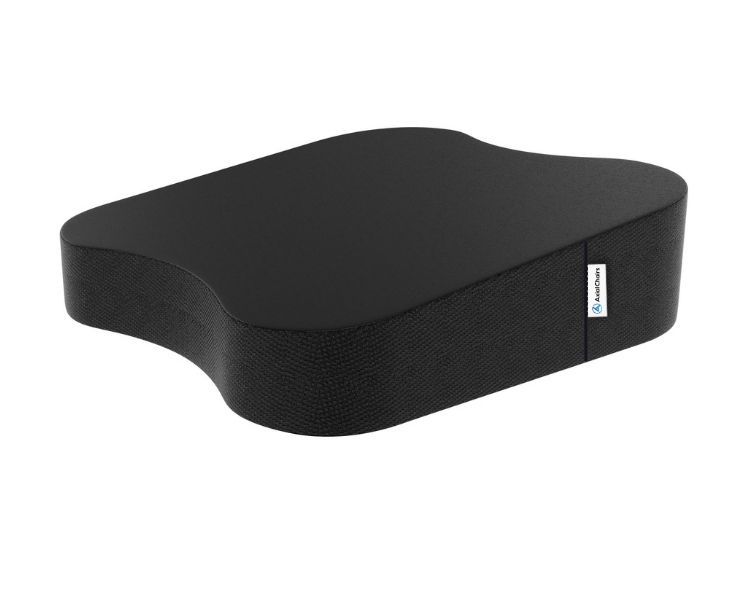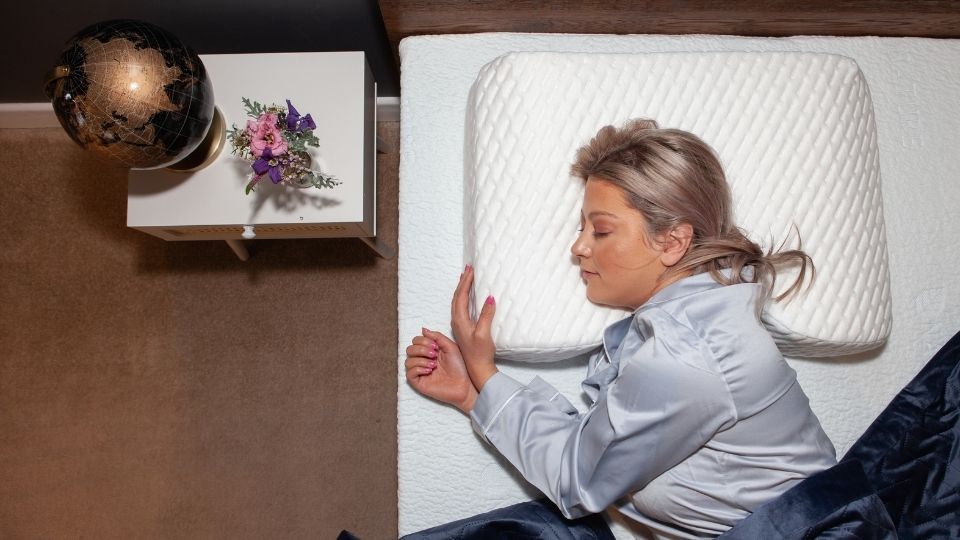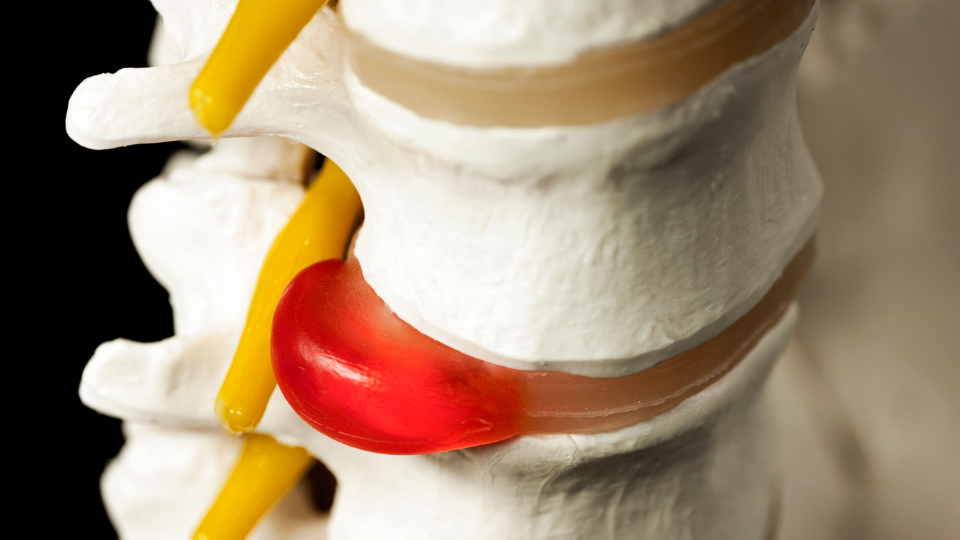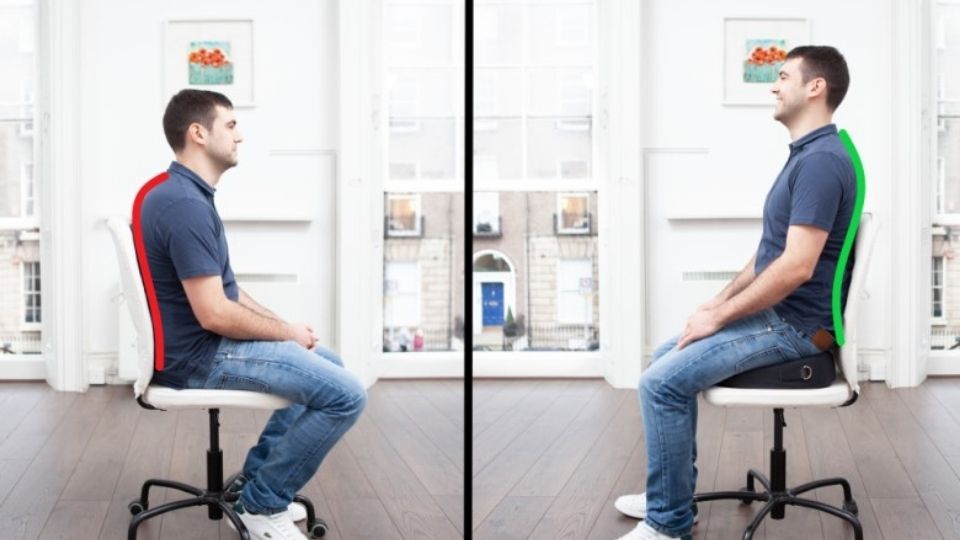Do you lay in your bed at night struggling to find a comfortable position with an undeniable tightness pulsing through your back? Pain is never convenient, yet it seems the ache intensifies the moment you crawl into bed. It’s nearly impossible to relax and toss and turn for hours hoping for sleep when pain disrupts your night. As a physician, I understand how difficult managing back pain can be as there are so many causes but what is even harder to comprehend why some pains seem more severe during the evening. In this blog post, I will discuss various factors that may contribute to feeling worse discomfort at night-time and possible treatments or preventative measures one can take before going to bed each day.
As a general rule, back pain at night is typically due to reduced physical activity, poor sleeping posture, and increased stiffness. Conditions that cause night-time back pain include degenerative disc disease, spinal stenosis, and osteoarthritis. Stretching exercises, heat therapy, and proper sleep positioning can help alleviate night-time back pain.
Do you suffer from back pain while sitting in an office chair? Let me offer you guidance on some fantastic alternatives. As a chiropractor and ergonomist with over three decades of experience, I’ve authored a book on posture, spoken on national TV, and developed creative solutions to make sitting comfortable. Recently, I raised funds through Kickstarter for a set of ergonomic seat cushions. Trust me to recommend some excellent options to alleviate your back pain.
Understanding the Causes of Nighttime Back Pain
Nighttime back pain can be a frustrating and debilitating experience, making it difficult to get a good night’s sleep. Several factors can contribute to back pain that is worse at night, including poor sleep posture, muscle strain, and underlying medical conditions. Understanding the potential causes of your nighttime back pain can help you identify the most effective treatment options and ultimately find relief.
Sleep Posture and Ergonomics
One of the most common reasons for back pain at night is poor sleep posture. Sleeping in an awkward position can place unnecessary stress on your spine, leading to discomfort and pain. To maintain proper alignment, consider using a supportive pillow to keep your neck and spine in a neutral position. Additionally, investing in a high-quality mattress that provides adequate support and comfort can alleviate nighttime back pain.
Muscle Strain and Overexertion
Back pain that worsens at night can also be a result of muscle strain or overexertion during the day. Activities like heavy lifting, intense exercise, or repetitive movements can cause your back muscles to become fatigued and sore. To prevent muscle strain, practice good body mechanics, engage in regular exercise to maintain strength and flexibility, and avoid excessive strain on your back muscles.
Effective Pain Management Strategies for Nighttime Back Pain
As an experienced chiropractor, I have seen countless patients struggling with nighttime back pain. It can be incredibly challenging to fall asleep and stay asleep when you are experiencing discomfort and discomfort. That is why I wanted to share with you some effective pain management strategies for nighttime back pain.
- Firstly, it is essential to make adjustments to your sleep environment. Invest in a good quality mattress and pillows that support your back and spine correctly. Avoid using flat pillows or sleeping on your stomach as it can strain your neck and spine. Sleeping on your side with a supportive pillow between your knees can offer relief by keeping your spine aligned.
- Secondly, initiating a regular stretching routine before bedtime can be beneficial for combating back pain. Simple exercises like lying on your back and pulling your knees toward your chest can help reduce discomfort and increase flexibility.
- Thirdly, It is also crucial to maintain a healthy weight and engage in regular physical activity to strengthen your core and back muscles. Being overweight puts excess pressure on the spine, leading to increased pain and discomfort. Chiropractic adjustments, such as spinal manipulation or mobilization, can provide immediate relief for nighttime back pain and allow for better sleep quality.
Lastly, be mindful of your posture during the day. Sitting or standing for extended periods with poor posture can cause back pain that affects your sleep quality at night. Maintain good posture by keeping your shoulders back, chest open, and feet firmly planted on the ground.
All Day Comfort & Support
Underlying Medical Conditions
In some cases, nighttime back pain can be a symptom of an underlying medical condition. Conditions like spinal stenosis, herniated discs, and degenerative disc disease can cause increased pain when lying down, as the change in position can compress nerves or aggravate the affected area. If you suspect that your nighttime back pain may be due to an underlying medical condition, consult with a healthcare professional for proper diagnosis and treatment.
Inflammatory and Autoimmune Conditions
Some inflammatory and autoimmune conditions, such as ankylosing spondylitis and rheumatoid arthritis, can lead to nighttime back pain. These conditions cause inflammation in the joints and soft tissues of the spine, which can become more pronounced during periods of rest. If you have been diagnosed with an inflammatory or autoimmune condition, work closely with your healthcare provider to develop an appropriate treatment plan to manage your symptoms.
Tips for Alleviating Nighttime Back Pain
If you’re struggling with back pain that’s worse at night, there are several strategies you can try to find relief. Maintaining a consistent sleep schedule, practicing good sleep hygiene, and creating a comfortable sleep environment can all contribute to reducing back pain during the night. Additionally, incorporating gentle stretching and relaxation techniques into your bedtime routine may help to alleviate muscle tension and promote restful sleep. If your nighttime back pain persists, consider seeking the advice of a healthcare professional or chiropractor for tailored recommendations and treatment options.
I’ve written a complete hands-on review about the best sitting position for sciatica, and here is what I tested best with my sciatica patients.
Understanding the Complexity of Low Back Pain
As a seasoned chiropractor, I understand the complexity of low back pain, and I empathize with those who suffer from it. Low back pain can be caused by a variety of factors, from physical strain to underlying medical conditions. It can be acute or chronic and can significantly impact one’s quality of life.
When Nightfall Brings More Suffering: Causes of Nighttime Back Pain
When nightfall brings more suffering, it can exacerbate the pain and discomfort of low back pain. Many individuals experience nighttime back pain due to a lack of movement during sleep, leading to stiffness and soreness. Additionally, individuals who suffer from sleep disorders such as sleep apnea may experience nighttime back pain due to the lack of oxygenation to the muscles and tissues during sleep.
Could Ankylosing Spondylitis be the Culprit?
An underlying medical condition, ankylosing spondylitis, can also be the culprit of nighttime back pain. This chronic inflammatory disease affects the spine and joints, resulting in pain and stiffness, which can be more pronounced during the nighttime.
How Chronic Pain Affects Sleep Quality
Chronic pain affects sleep quality, leading to a vicious cycle of pain and poor sleep. Effective pain management strategies for nighttime back pain include gentle stretching before bedtime, taking medication to reduce inflammation and pain, and avoiding caffeine and alcohol before bed. Practicing good sleep hygiene, such as creating a quiet and relaxing sleep environment and adhering to a consistent sleep schedule, can also improve sleep quality and reduce nighttime back pain.
Seeking Help: Health Services and Support for Back Pain
Seeking help is crucial for those who suffer from low back pain. There are several health services and support available, such as pain management clinics, physical therapy, and chiropractic care. These services can provide personalized treatment plans to help individuals manage their pain and improve their overall well-being.
Back Pain at Night
Back pain intensity varies from person to person, and several factors influence its development. Nighttime back pain, in particular, can be an indicator of a significant underlying health issue. This exacerbation of pain at night can result from prolonged periods of inactivity, an underlying health condition or injury, or the quality of the mattress or pillows used.
Cancer
Cancer, a word that we all dread, can manifest itself in a myriad of ways, including back pain. Unrelenting back pain, when accompanied by inflammation or weight loss, is a red flag, and everyone experiencing such symptoms must seek medical attention immediately. As part of our duty of care, we must examine the patients’ histories, perform a thorough physical examination and conduct relevant diagnostic tests to rule out cancer or any other serious underlying illness.
Upper Back Pain Worse at Night
Upper back pain, when intensified at night, can result from prolonged periods of inactivity or incorrect posture during the day. It is crucial to identify the correct cause of the pain to address it appropriately. Treatment can include physical therapy, chiropractic adjustments, massage, and even simple posture adjustments.
Lower Back Pain at Night Only
When lower back pain manifests only at night, it might be indicative of a slipped disk, sciatica or spinal stenosis, resulting from a bulge or herniation in the lower back region. These health issues require an accurate diagnosis and follow-up care, such as rehabilitation, chiropractic adjustments, or surgery.
Why is Back Pain at Night a Red Flag?
Persistent nighttime back pain is a worrying sign because it may indicate any of the following conditions: infection, inflammation, nerve impingement, cancer or kidney issues. These health problems can all impact your overall health and cause long-term damage if left untreated. As such, seeking professional help should be a top priority.
Waking up with Back Pain in the Middle of the Night
Waking up with back pain in the middle of the night can disrupt your sleep, leading to problems such as depression, fatigue, and decreased productivity. It is essential to improve your sleep cycle by creating better sleep habits, such as a regular sleep pattern, a comfortable bed, and pillow arrangement. If back pain persists after trying these measures, then seeking professional help is highly recommended.
Best Seat Cushion for Back SupportAxial Ergonomic Seat Cushion® | Seat Chair Wedge
Quick Guide: A 30-Second Summary

All Day Comfort & Support
Product Name
Axial Designs™ Seat Cushion
Price
$149
Warranty
1 Year
Type
Posture Wedge
Top Layer
100% Natural Latex (Molded)
Bottom Layer
High-Density Foam
Top Material
Isometric Grippy Vegan Leather
Bottom Material
Non-Slip Material
Side Material
3D Breathable Fabric
Establishing an Ergonomic Seating Environment: Tips and Advice
To effectively manage your seating needs, it’s essential to focus on various elements, with chair customization being a vital aspect. Different methods can assist you in achieving this, such as integrating an ergonomic seat pillow and lumbar support. These additions can reduce strain on your back and legs, improving comfort and posture during lengthy sitting sessions. Also, ensure your feet are flat on the floor and that there’s sufficient space between your chair and desk. By following these suggestions, any ordinary firm chair can be transformed into an ergonomic retreat that fosters long-term health and well-being.
Ergonomic Seat Accessory
An ergonomic seat wedge (above) can be utilized to properly position your spine and enhance stability. This well-crafted natural latex seat accessory aids in building core strength while alleviating tension in other body areas, such as the shoulders and neck. Furthermore, sitting upright is easier on your hips and knees, as it activates more muscle groups simultaneously compared to reclining against a cushioned surface. This upright posture averts the adoption of stress-triggering habits that individuals may inadvertently develop while working.
Conclusion
Experiencing back pain at night is not only distressing but can be an indicator of a serious underlying health issue. It is vital to seek out professional help when experiencing persistent nighttime back pain for accurate diagnosis and an effective course of care. Remember, early detection and treatment can result in a better prognosis and improved quality of life.










